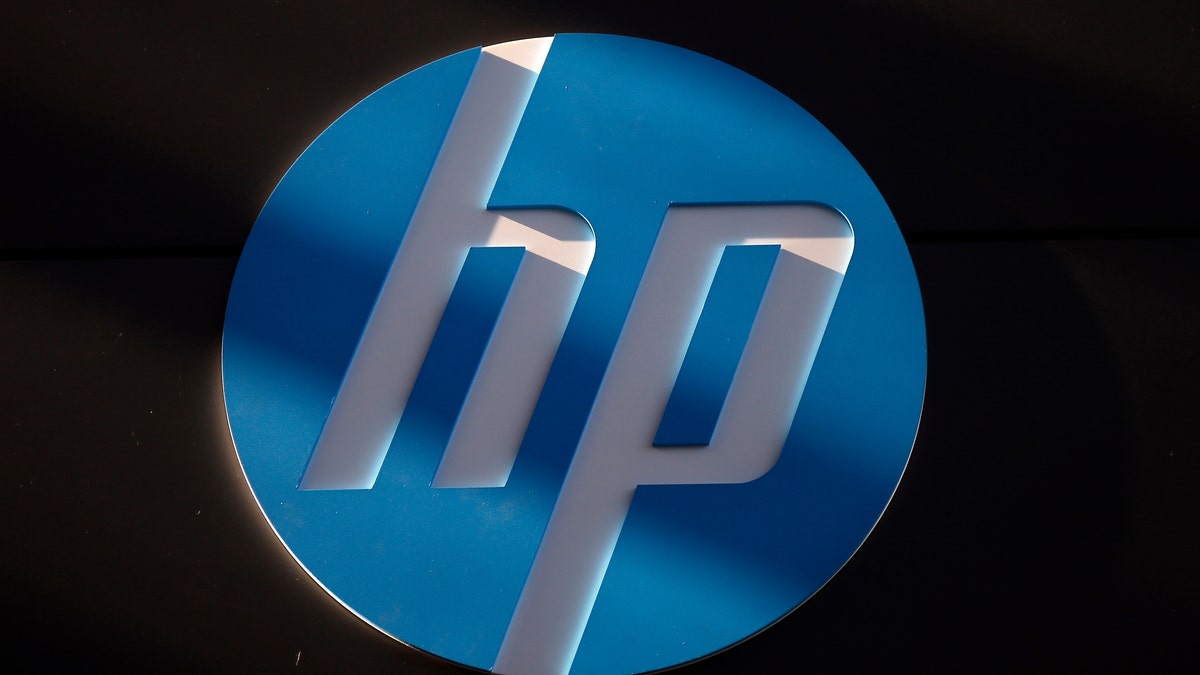
A Hewlett-Packard logo is seen at the company's Executive Briefing Center in Palo Alto, California January 16, 2013. REUTERS/Stephen Lam (UNITED STATES - Tags: BUSINESS SCIENCE TECHNOLOGY LOGO) - RTR3CJJC (REUTERS/Stephen Lam)
HP’s decision to split in two spells good news for the company’s customers, according to analysts, while reshaping the stagnant PC market.
“They are going to maintain that focus on the HP brand,” Beau Skonieczny, an analyst at Technology Business Research, told FoxNews.com. “I do think it’s a positive move."
Brian White, an analyst at Cantor Fitzgerald described the split as “a bold and smart move” in a note released on Monday, giving HP both greater focus and flexibility.
The Palo Alto, Calif.-based tech giant announced Monday that it is dividing into two separate companies. HP Inc will focus on personal systems, such as PCs and printing products, while HP Enterprise targets software, services, and technology infrastructure such as servers and storage hardware.
The firm’s current logo will be retained by HP Inc.
While the PC market lacks the growth of, say, mobile devices, Skonieczny believes that HP’s split will help it drive some innovation. In its statement, the company touted 3D printing and “new computing experiences” as key elements of HP Inc.
Part of a five-year turnaround plan launched by HP CEO Meg Whitman, the split aims to make the separate entities nimble enough to challenge in fiercely competitive markets. “By transitioning now from one HP to two new companies, created out of our successful turnaround efforts, we will be in an even better position to compete in the market, support our customers and partners, and deliver maximum value to our shareholders”, said Whitman, in the company’s statement.
HP’s multiple tablet offerings, however, still face a tough battle against Apple’s iPad, although the company has made some moves into the wearable space, forging a smartwatch partnership with designer Michael Bastian. A note on the company’s website says that the HP Smartwatch is coming soon.
Whitman will be CEO of HP Enterprise, while Dion Weisler, currently executive vice president of the company’s Printing and Personal Systems Business, will lead HP Inc. HP expects to complete its split by the end of October 2015.
There has also been plenty of chatter that the split makes it easier for HP to sell off parts of its business.
Skonieczny told FoxNews.com that he expects to see fewer and fewer players in the PC market during the coming years, citing Samsung’s increasing focus on mobile and Sony’s sale of its VAIO PC business to investment firm Japan Industrial Partners earlier this year. Last month Toshiba announced plans to shift its PC focus from consumers to businesses.
Tech heavyweights have been adapting to shifting trends in the PC market for a number of years. IBM, for example, sold its PC business to Lenovo in 2004.
Tech research firm IDC recently predicted that worldwide PC shipments are expected to fall by 3.7% in 2014, an improvement from a previously forecast 6% decline. IDC’s research noted that PC shipments in emerging markets remain constrained thanks to competition from “alternative devices” as well as political and economic issues. However, more mature regions are expected to enjoy 5.6% year-over-year growth in PC shipments, according to IDC, the highest since 2010.
Follow James Rogers on Twitter @jamesjrogers
